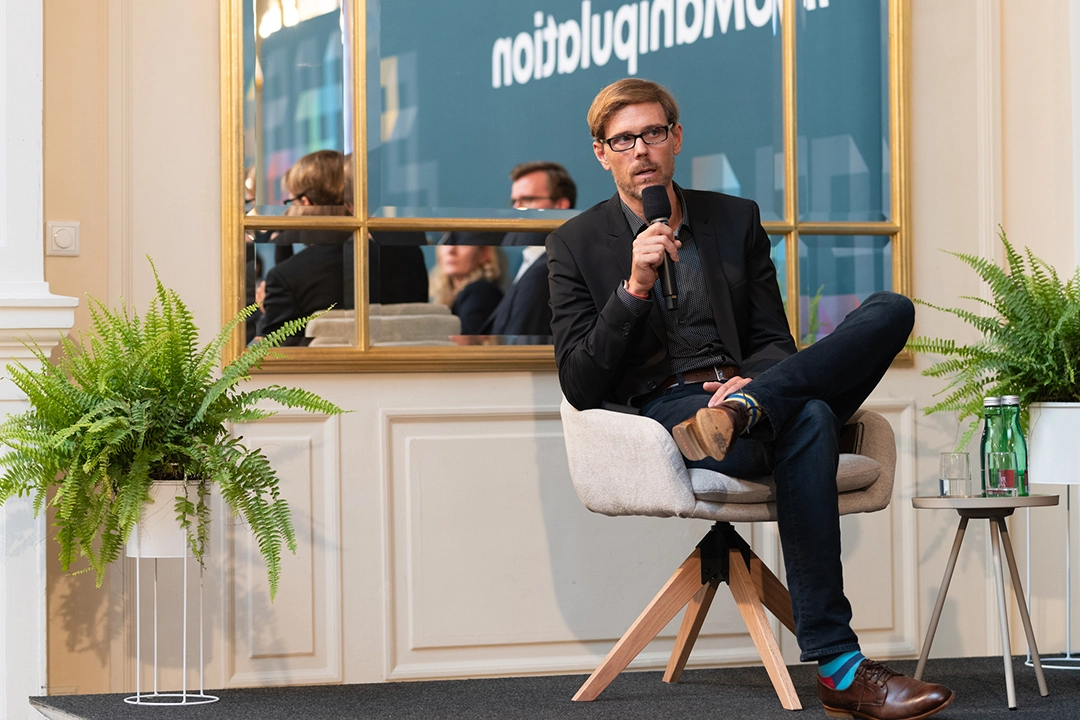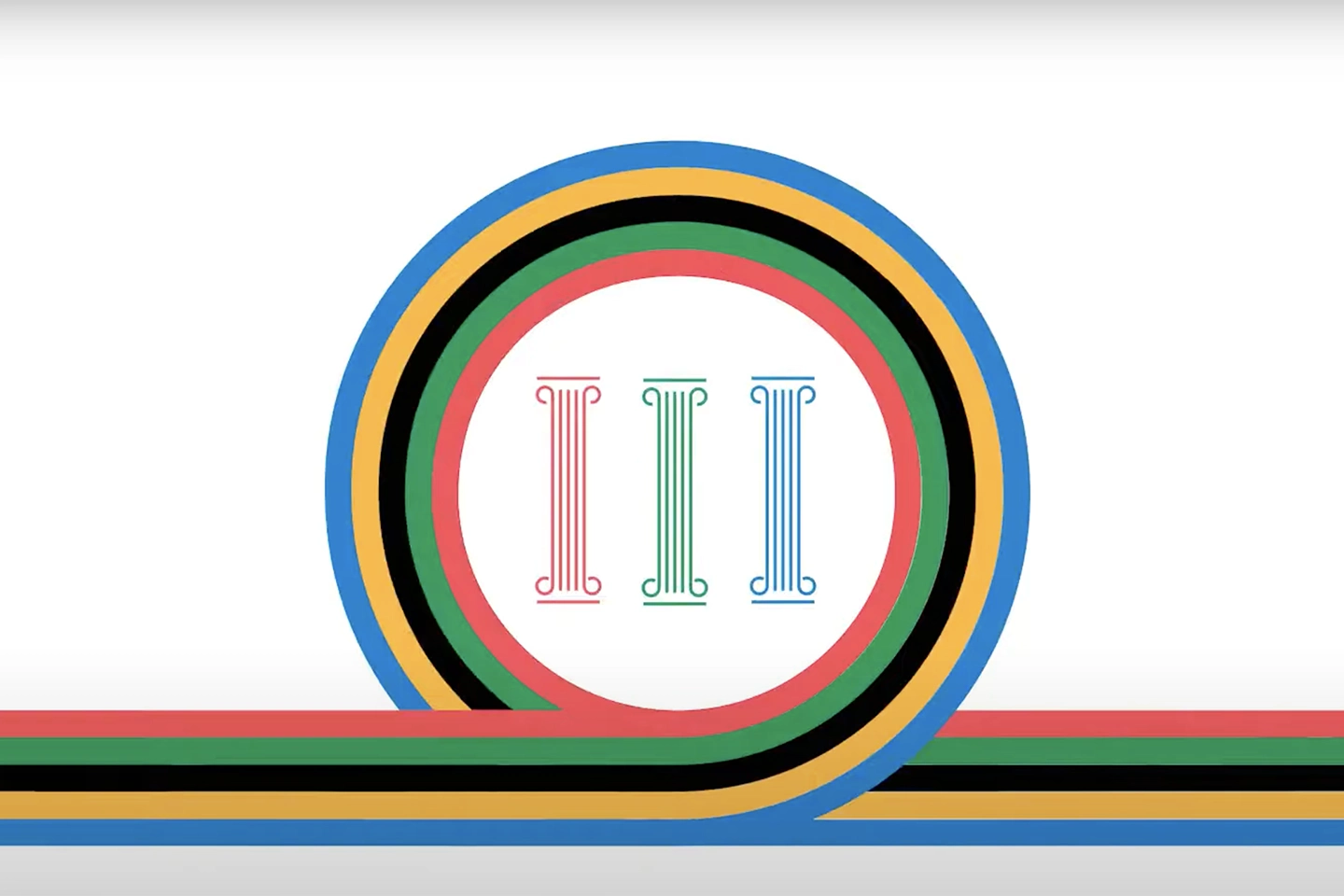Today, the lotteries, sports betting, and sports worlds are inextricably linked, and face many challenges together. Friedrich Martens is head of the Olympic Movement Unit on the Prevention of the Manipulation of Competitions, which is part of the IOC Ethics and Compliance Office, and has extensive experience in the realm of sports organizations and the sports betting industry.
Through this Unit, the IOC strengthens its initiatives under its 3 Pillar Strategy – Regulations, Education, Intelligence, working with Olympic Movement stakeholders in the fight against match fixing, during the Olympic Games, and entire Olympic cycle.
In the following interview, Martens discusses the work of the OM Unit on Prevention of the Manipulation of Competitions and its relationship with ULIS.

What is the current status of sports competition manipulation worldwide?
Competition manipulation is a phenomenon that jeopardizes the integrity, credibility and inspirational value of sports. No sport or country is immune to this phenomenon. On a daily basis, we see rumours, reports and allegations of fixed matches or breaches or our sport rules in the news.
In general, and based on our risk assessments prior to the latest editions of the Olympic Games, we have seen that team sports and racket sports are riskier than others. However, under no circumstances does this mean that we do not have to monitor and give our full support to other sports.
A combination of factors has led to the increase of this phenomenon. These include the proliferation of sports betting, expansion of betting markets, various new information technologies and the modus operandi of organized crime operators, interested in these ever- growing sports betting markets. It is important to point out, that as per the sporting rules, manipulation of a competition without a link to sports betting, e.g. ‘just for strategic reasons’, is prohibited.
Within the sports world, which stakeholders are affected?
In principle, all sports and all countries can be affected. This is why our Unit, the ‘Olympic Movement Unit on the Prevention of the Manipulation of Competitions’ (OM Unit PMC) works with all International Federations (IFs), National Olympic Committees (NOCs) and multi-sport event organizers.
The methodology of our Unit is based on a three-pillar approach: Regulations, awareness-raising and intelligence/investigations. The Unit supports all NOCs, IFs, as well as multi-sport event organizers to adopt rules in compliance with the ‘Olympic Movement Code on the Prevention of the Manipulation of Competitions’ (OM Code PMC), develop awareness-raising activities and support with intelligence management and investigations. At the same time via our cooperations with INTERPOL, United Nations Office on Drugs and Crime (UNODC) and the Council of Europe (CoE), we connect all stakeholders with state and law enforcement authorities so that an environment of trust can be created and disciplinary and criminal investigations are well coordinated.
At the same time, we must not forget the most important stakeholders, the ones at the heart of the Olympic Movement: the athletes. With the infiltration of criminal networks into sports, our athletes and sportspersons can be approached and become involved in such wrong doings which may subsequently destroy their careers. Thus, it is our duty to safeguard all athletes, their entourage and all sportspersons. For many years, the OM Unit PMC has considered prevention, specifically running awareness-raising measures and education for sports persons, as fundamental. To this end, it has built a wide array of measures, and shared these with the wider Olympic Movement and all our stakeholders.
How does the IOC address these issues?
Already since the 2004 Summer Olympics Games in Athens, the IOC has followed the matter and introduced measures. Monitoring of Olympic competitions started four years later during the 2008 Beijing Summer Olympic Games. In 2012, during the London Games, we reached another milestones with the establishment of the Joint Assessment Unit with UK authorities, and in 2015, the IOC Executive Board adopted the Olympic Movement Code on the Prevention of the Manipulation of Competitions (OM Code PMC). This Code is part of the Olympic Charter at the same level as the ‘World Anti-Doping Code’, and thus compliance with it is compulsory for all Olympic Movement stakeholders. This Code also is fully in line with the CoE Convention on the Manipulation of Sports Competitions (the Macolin Convention). It sort of is the ratification of the Convention, for the Olympic Movement, and aims to provide sports organizations with harmonized regulations to protect all competitions from the risk of manipulation.
As another big step, in 2017 the OM Unit PMC was created, and I am proud to head a fantastic team from within the Olympic House, the IOC Headquarter in Lausanne, Switzerland. The mandate of our Unit goes far beyond safeguarding the integrity of the Olympics. We actually exist to support of the whole Olympic Movement throughout the Olympic cycle. We ensure that there is compliance with the OM Code PMC – we support all stakeholders of the Olympic Movement develop actions with regards to all topics related to competition manipulation, notably in relation to regulation, awareness-raising, and intelligence.
In 2023 the IOC Executive Board recognized this work of the Unit and established a structured fund of USD 10 million per Olympiad, which helps us to further reinforce our activities and show to the whole Olympic Movement the sustainability of all our activities.
However, we are fully aware that sport cannot be successful alone. Fighting competition manipulation is a team effort. Here, let me point out our important, long-standing partnerships with INTERPOL, UNODC and the Council of Europe.
We are equally very proud of our ‘Integrity Betting Intelligence System’ (IBIS), an IT platform through which we are connected to a wide array of sports betting entities, including the United Lotteries for Integrity in Sports (ULIS), in order to establish cross-sector communication about reports from the realm of sports betting. Indeed, the input and contribution of the betting sector to the cause is of pivotal importance.
What is the role of sports monitoring bodies in combating match fixing and helping to maintain sports integrity, and why did the IOC become a ULIS partner?
Sport alone is not in a position to do the monitoring work. Therefore, the role of the betting sector in the prevention of the manipulation of competition is crucial. Actually, we rely a lot upon sports betting monitoring bodies, such as ULIS, for the detection of irregularities or suspicious betting activities that might suggest competition manipulation.
Considering the long-standing and symbiotic relation between the lotteries and sports sectors, partnering with ULIS was logical. We have cooperated with ULIS since its creation in 2015 (formerly known as GLMS). We appreciate the activities of ULIS, when it comes to the monitoring sports competitions, its strong network, experienced team of analysts, and the information we receive. ULIS has also significantly supported us with the monitoring of the Olympic Games. We look forward to continuing and further enhancing this relationship, in the highest interest of the integrity and credibility of sport.
How do you contribute to the ULIS network?
We are aware of the strong network that ULIS represents, comprising lottery members offering sports betting across the globe. The potential input of analysts from all these lotteries ensures credibility to the monitoring and intelligence work of ULIS. From our side, via ULIS we have involved its members in numerous activities of ours and we have also supported many events organized by ULIS over the past years. Additionally, upon request and in alignment with ULIS, we have and will continue to onboard members of ULIS directly into our IBIS platform – though we already consider all ULIS members to be indirectly connected to this platform.
Are there any other ways that ULIS could enhance the support it provides to its network?
Thank you for this question. Indeed, although we highly value and appreciate the work and contribution of ULIS, there is always room for enhanced cooperation.
For example, there is room for enhanced support regarding one of the violations foreseen by the OM Code PMC – betting on one’s sport. According to this, sportspersons are prohibited to bet on their own sport (or any sport during multi-sport events in which they participate, e.g. the Olympic Games.
While this rule is fundamental, it obviously is very hard to implement. Therefore, we highly value the further support of ULIS and its members to identify such violations. It is very good to see, that this is already foreseen by the ULIS Code of Conduct and its specific chapter: Safeguarding the moral integrity of sportspersons. We are happy to further work with ULIS on this workstream, the sharing of account-based information, and together, will identify avenues to manage this in a way that complies with the data protection-legislation. Massive thanks from all the Olympic Movement for this way forward: Together we will be stronger!
About
Media inquiries
Legal notice
This pop-up contains legal information about this website.
This content is the property of the World Lottery Association (WLA). It may not be transferred
from the custody or control of the WLA except as authorized in writing by an officer of the WLA.
Neither this document, nor the information it contains, may be used, transferred, reproduced,
published, or disclosed, in whole or in part, either directly or indirectly, except as expressly
authorized by an officer of the WLA, pursuant to written agreement.
The WLA Website has been designed to provide information to the lottery community. The World Lottery Association has used great efforts to provide accurate and up-to-date information. However, WLA excludes any warranty, whether express or implied, for any information provided under these pages. WLA cannot be held responsible for any action taken that is based on the information hereunder.
The WLA Website also contains third party information. Such information is, wherever practically possible, marked with the name of the source and does not necessarily represent the opinion of the World Lottery Association. WLA does not take any responsibility whatsoever for such third party information.
The WLA Website also contains links to other Internet sites. WLA does not have any knowledge of the information contained in such other sites, nor has WLA been able to include such other sites in its efforts to provide accurate information. WLA therefore does not take any responsibility whatsoever for such third party information.
All rights reserved except where indicated.













